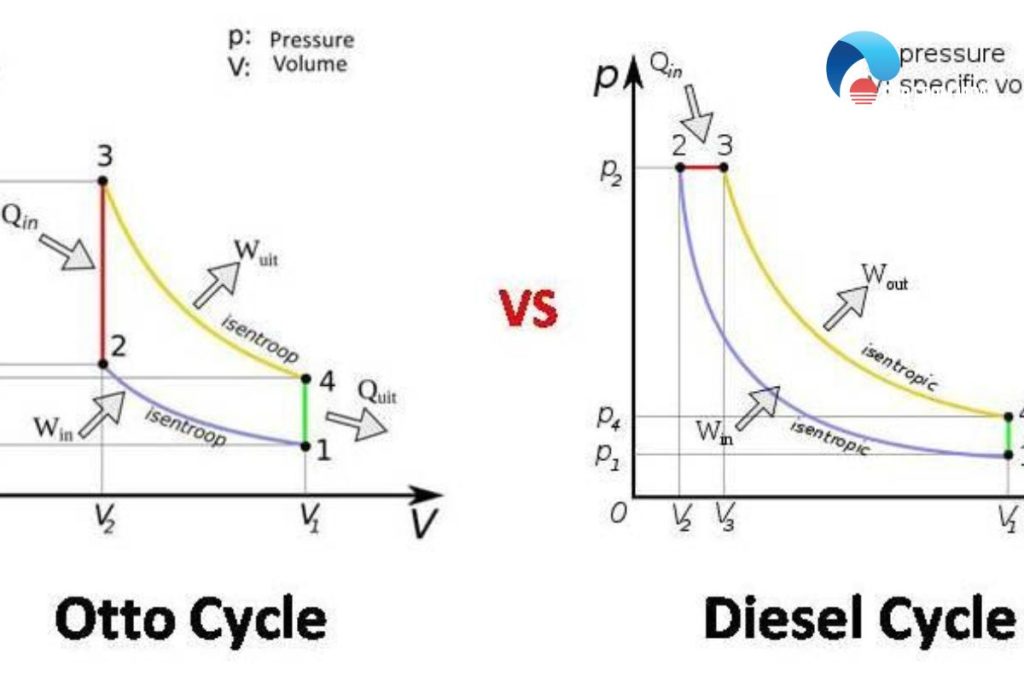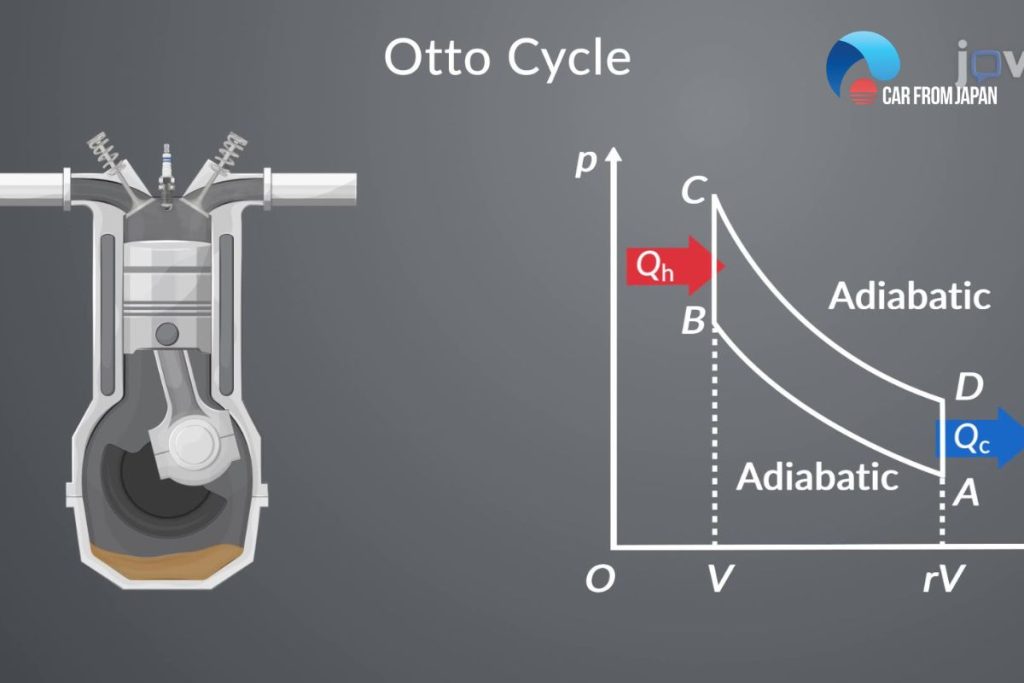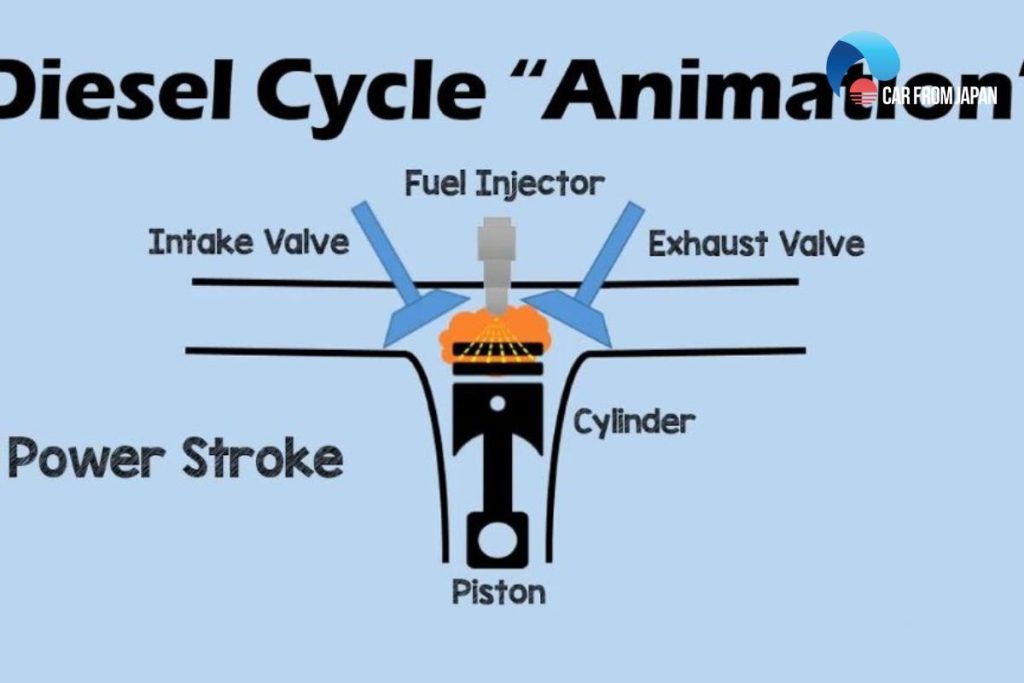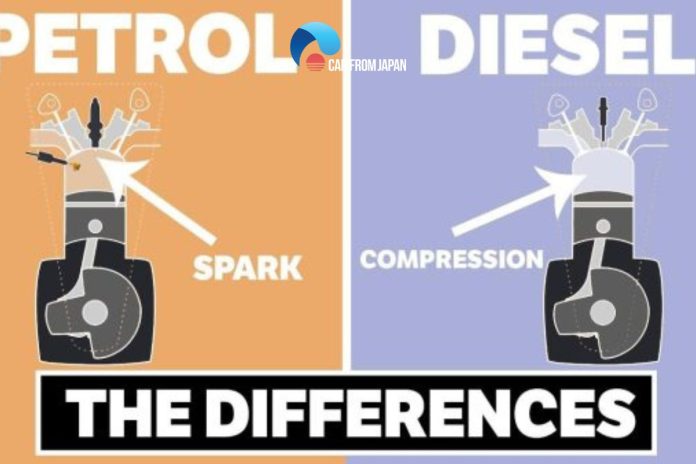Let’s discover the main difference between Otto cycle and diesel cycle, as many of us still are unaware of what these terms mean!
Otto cycle is used by petrol ignition whereas diesel engine uses the diesel cycle. The main difference that separates these two cycles is the way they supply heat to the engine to begin the ignition.
Another noteworthy difference is that the Otto cycle heat occurs at constant volume, whereas the diesel cycle works at constant pressure. Besides, there are other differences as well, which we are going to explain here.
Contents
Difference Between Otto Cycle And Diesel Cycle
While the differences between diesel and otto cycle is the way these cycles supply heat to the engine, we have certain other differences here, which are worth knowing for any driver.
The Proposed Idea
The first Otto cycle and diesel cycle difference leads us back to different years when it was proposed.
The idea of the Otto Cycle was given by Nicolas Otto back then in 1876 while the other one, the diesel cycle, was proposed by Dr. Rudolph Diesel, who introduced it to the world then in 1897.
So, the idea was proposed by two different people in different years, which differentiated these two cycles at the first point.

See More: Which Engine is Recommended by the Experts? Diesel or Petrol?
Diesel Cycle Vs. Otto Cycle – The Compression Ratio
Yes, among the otto cycle and diesel cycle difference, the compression ratio works differently in both these cycles. The Diesel cycle has a high compression ratio and condenses the entire mixture up to 22.1 ratios.
On the other hand, if we speak of Otto Cycle, it has a low compression ratio of 11:1 to compress the mixture.
What’s With The Ignition?
The Otto Cycle uses spark plugs to light the charge, which is a mixture of air and fuel. On the other hand, the diesel one needs no assistance to be ignited.
The reason for this self-ignition is the high compression ratio that doesn’t allow it to rely on any plug for the charge.
Better Efficiency
Well, if we go by what everyone has to say about the efficiency of these cycles, the diesel cycle tops the charts.
The Otto cycle, comparatively, has lesser or lower efficiency, which makes diesel cycles a better option any day.
The Difference In Process Of Otto and Diesel Cycle
So, there is a difference between otto cycle and diesel cycle when we consider their processing.
1# The Method Of The Otto Cycle

Otto Cycle works on four processes, which commences with intake stroke where the mass of air is pushed into the piston at unvarying pressure.
The second step is compression stroke, where isentropic compression takes place. It is the actual time when the mixture of fuel and air is compressed.
At this point, the cylinder will move from the bottom dead center to the top.
Then comes the ignition phase where the piston respites at the top dead center, for a while. Heat is now pushed into the system that burns the mixture of air and fuel already present there.
It leads to acceleration in the pressure, keeping volume steady. It proceeds to expansion stroke, and heat rejection phase later on, which is followed up by the exhaust stroke in the end.
2# The Method Of Diesel Cycle
The diesel cycle works on different processes, which contain four steps in total. It starts with adiabatic compression and moves to the next step called heat addition at constant pressure.
Then it follows the adiabatic expansion and finally gets into the process where the heat is rejected at constant volume.

FAQs On Difference Between Otto Cycle And Diesel Cycle
In some vehicle types, why does Otto outperform diesel cycle?
Because of the density of diesel fuel and the compression ratios of diesel engines, diesel engines receive greater gas mileage than gasoline engines.
Do automobiles use the Otto cycle?
The Otto Cycle shows how heat engines generate motion from fuel.
This cycle, like other thermodynamic cycles, converts chemical energy into thermal energy and ultimately into motion.
The Otto cycle outlines how internal combustion engines (such as vehicles and lawn mowers) function.
What are the Otto cycle’s drawbacks?
It is only applicable to internal combustion engines powered by gasoline or natural gas and does not apply to diesel engines.
The efficiency is restricted, and it cannot attain the same results as the Carnot Cycle.
How can Otto cycle efficiency be improved?
The efficiency of the Otto Cycle rises as the compression ratio values grow. Furthermore, as the combustion temperature rises, so does the power production of the Otto Cycle.
The power output of the Otto Cycle increases as the compression ratio increases.
What are the Diesel cycle’s limitations?
The Diesel Cycle is solely applicable to diesel internal combustion engines and does not apply to petrol engines (or gas).
The efficiency of the Diesel Cycle is restricted, and it cannot accomplish as much as the Carnot Cycle.
Learn more about the Otto cycle in animation with Earth Pen for easy understanding!
The Final Words
We have just scrolled through the main difference between Otto cycle and diesel cycle, and we have explained it all.
Hope it will help you in getting a clear idea of what these terms mean and even their work. For more car maintenance tips, follow Car From Japan today!



